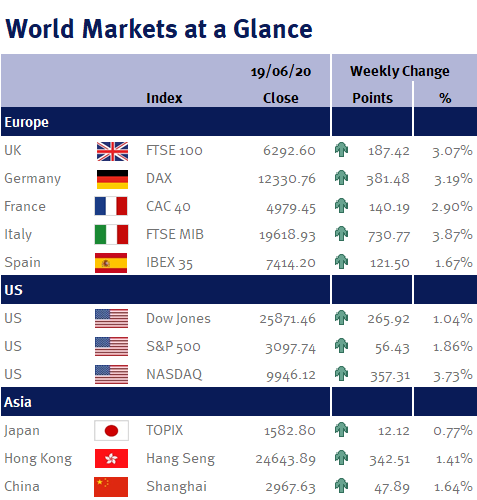Global equity markets rose this week on the back of more evidence that the global economy is improving.
Both the Empire State survey and the Philadelphia Fed survey were consistent in showing business conditions in June improved, while the manufacturing outlook rebounded much stronger than expected. Additionally, US retail sales (a pillar of the US economy) for May saw a record jump and mortgage applications rose to their highest level since 2009 (which is a sign that Americans are confident about their job prospects).
Taken together with the unprecedented government and central bank stimulus, this not only suggests the US recession is quickly coming to an end, but bodes well for a ‘V-shaped’ economic recovery.
Additionally, equity market sentiment was helped by news that the latest coronavirus outbreak in Beijing was quickly contained, coupled with news that China plans to honour all of its commitments under the US/China Phase 1 trade deal. Not only does this mean China will need to accelerate purchases of US products in order to meet the terms of the trade deal after the coronavirus outbreak reduced purchases earlier in the year, but also suggests that US/China tensions may be thawing.
This week coming we have UK, Eurozone & US PMI; US home sales; US durable goods orders; the University of Michigan Consumer Sentiment index; and of course the weekly US jobless claims data.
Investment Management Team


